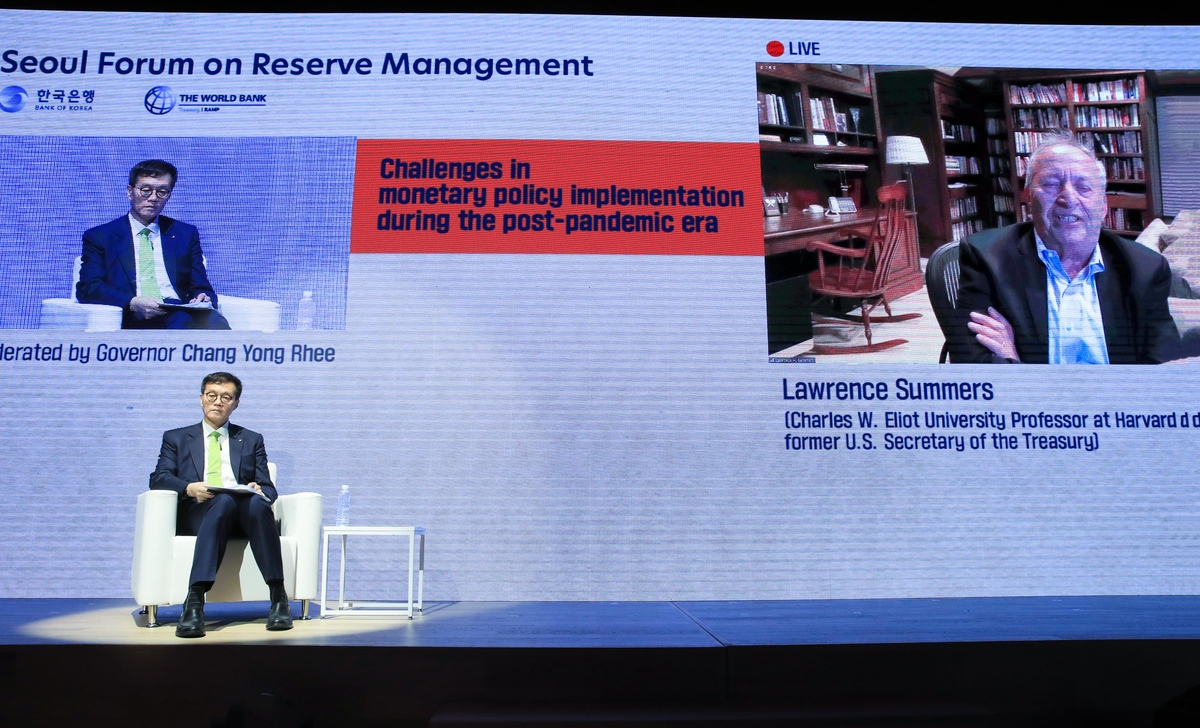 |
Former Treasury Secretary Lawrence Summers is seen on the right of the screen during a video conference with Bank of Korea Gov. Rhee Chang-yong. (Yonhap) |
The Federal Reserve's rate hike may not have come to an end given strong economic performance, although long-term neutral interest rate will come down to a 2 percent range, former US Treasury Secretary Lawrence Summers said Monday.
Early this month, the Fed held its benchmark lending rate steady between 5.25 and 5.50 percent for a second consecutive time as it keeps striving to bring down inflation to its 2-percent target.
But it left open the possibility of a rate change later to achieve "maximum" employment and its inflation target.
"I look at the fact that the economy seems to be growing rather robustly and am not so sure that monetary policy is currently restrictive," Summers said in a video conference with Bank of Korea Gov. Rhee Chang-yong.
Summers, a Harvard University professor, expected the Fed would not raise its policy rate in December, but he said the current rate levels are not significantly restrictive.
"So I think that the case that the Fed is finished is a bit overstated in markets right now," he said.
He said the neutral real interest rate is now between 1 1/2 and two, adding the term premium will be 100 to 150 basis points going forward.
"I have expected that after this recent high inflation period, our probably neutral interest rate will go down. We have a downward trend," he said.
South Korea's central bank also held its key interest rate steady at 3.5 percent for the sixth straight time last month amid a slowdown in growth and heightened uncertainties, such as the prolonged Ukraine-Russia war and rising household debts.
It marked the sixth straight time that the BOK has stood pat following rate freezes in February, April, May, July and August. The rate freezes came after the BOK delivered seven consecutive rate hikes from April 2022 to January 2023. (Yonhap)






![[Weekender] Korea's traditional sauce culture gains global recognition](http://res.heraldm.com/phpwas/restmb_idxmake.php?idx=644&simg=/content/image/2024/11/21/20241121050153_0.jpg)
